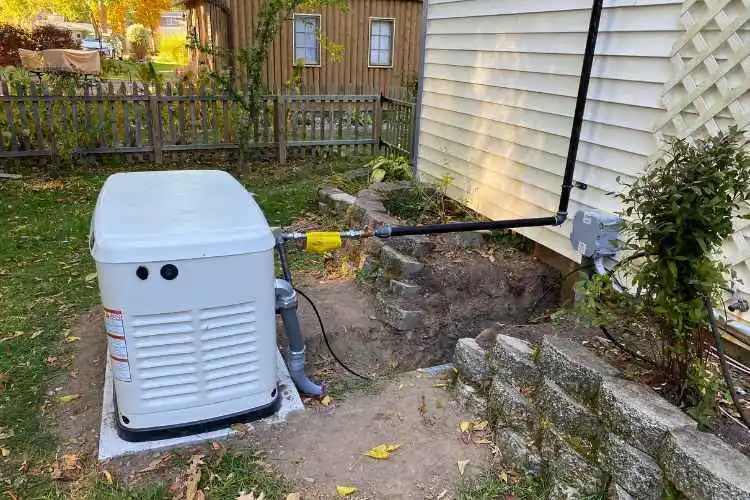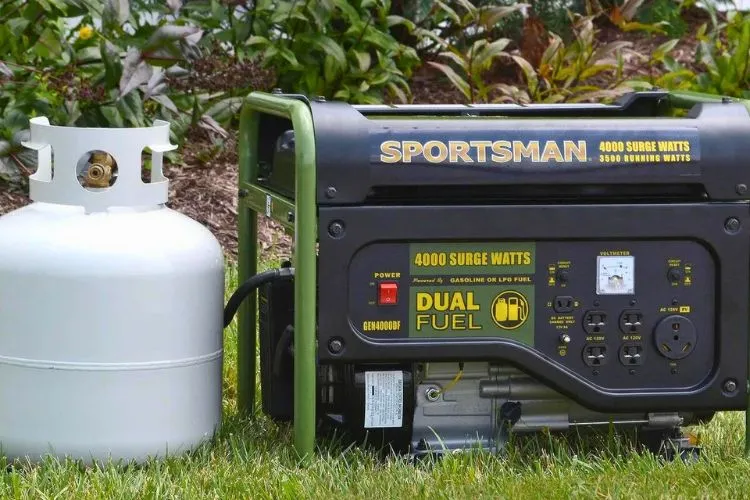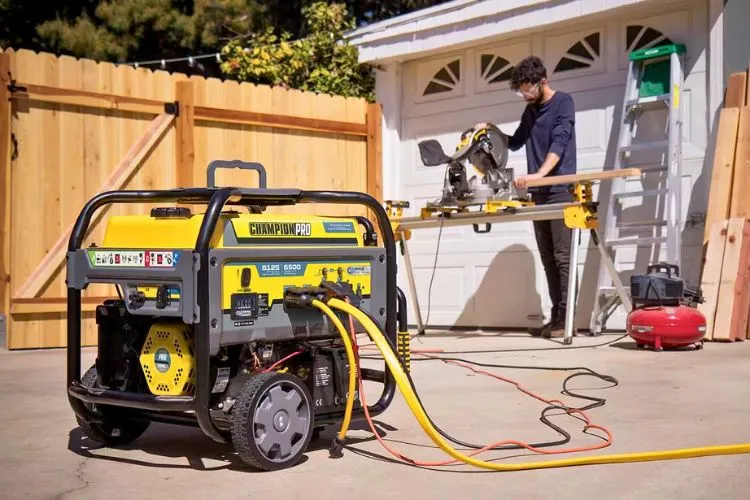In today’s world, being prepared for unexpected power outages is more important than ever.
Whether due to natural disasters or routine maintenance, the loss of power can cause significant disruptions.
This is where the gas generator comes into play. Offering a reliable source of emergency power, gas generators have become a popular choice for many.
But, should you install a gas generator? Are there any drawbacks of doing the same?
This article aims to provide you with all you need to know to make an informed choice.

Should You Install A Gas Generator?
Gas generators convert natural gas or propane into electrical power. They come in two main types: those that run on natural gas and those that use propane.
When compared to diesel, solar, and battery-powered generators, gas generators stand out for their reliability and the widespread availability of their fuel sources.
Advantages of Installing a Gas Generator
Reliability
First and foremost, gas generators are known for their dependable power supply. Unlike solar generators that rely on sunlight, gas generators can provide power regardless of weather conditions.

Availability of Fuel
Natural gas and propane are widely available, and in many cases, these fuels can be directly piped to the generator, eliminating the need for manual refueling.
Moreover, propane can be stored for long periods without the risk of degradation, unlike diesel.
Environmental Consideration
Gas generators generally produce fewer emissions compared to diesel generators. This makes them a more environmentally friendly option for those concerned about their carbon footprint.
Cost-Effectiveness
Though the initial setup cost of a gas generator might be high, the long-term operating costs are often lower. Additionally, some regions offer tax benefits or incentives for installing gas generators, further reducing the total cost of ownership.
Considerations Before Installing a Gas Generator
Installation Requirements
Installing a gas generator requires careful planning. You’ll need to consider space for the unit and ensure there’s adequate ventilation to avoid the risk of carbon monoxide poisoning. Local regulations and permits are also an important consideration.
Fuel Source Accessibility
Your proximity to natural gas lines or a reliable propane supply is crucial. Without easy access to fuel, the convenience and effectiveness of a gas generator could be compromised.
Maintenance and Running Costs
Regular maintenance is essential for the safe and efficient operation of your gas generator. Additionally, while natural gas and propane are generally less expensive than diesel, prices can fluctuate, impacting operating costs.
Noise Level
Gas generators are known to produce noise, which can be a concern in residential areas. However, manufacturers offer solutions to mitigate noise, and comparing the noise levels of different generator types is advisable before making a purchase.
How to Choose the Right Gas Generator?
Assessing Power Needs
Determining your power requirements is the first step in choosing the right gas generator. Consider which appliances and systems you need to keep running during an outage and calculate your total power needs accordingly.

Understanding Generator Sizes and Types
Generators come in various sizes and can be categorized as standby or portable. Standby generators automatically kick in during a power outage and are ideal for those needing uninterrupted power.
Portable generators, while offering flexibility, require manual setup and operation.
Features to Look For
When selecting a gas generator, look for models with an automatic start feature, power management systems, and included transfer switches. These features enhance convenience and ensure a smoother operation during power outages.
Installation Process
The installation of a gas generator should always be performed by qualified professionals. Proper installation ensures the generator operates safely and efficiently, and adherence to local codes and regulations is a must.
Safety Tips
Safety is paramount when using a gas generator. Adequate ventilation is crucial to prevent the buildup of carbon monoxide. Additionally, regular maintenance checks are essential to ensure safe operation and extend the life of your generator.
Pro Tips
For those seeking to maximize the utility of their gas generator, integrating a smart home system can offer better control and efficiency.
Additionally, evaluating the warranty and service plans before purchasing can save headaches down the line. Lastly, periodic testing of your generator ensures it’s ready to go when you need it most.
Frequently Asked Questions (FAQs)
How long can a gas generator run continuously?
The continuous running time of a gas generator depends on its model and fuel supply. Typically, standby generators can run as long as they have a constant fuel source.
Are gas generators safe to use in residential areas?
Yes, when installed and maintained correctly, gas generators are safe for residential use. Ensuring proper ventilation and adhering to local regulations is crucial.
How does weather affect the operation of a gas generator?
Gas generators are less affected by weather than other types, such as solar generators. However, extreme conditions can impact performance, so it’s important to have your generator installed in a protected area.
Can a gas generator power an entire home during an outage?
Yes, provided you choose a generator that meets your home’s power requirements, a gas generator can power an entire home during an outage.
What is the difference between a portable gas generator and a standby gas generator?
The main difference is in their operation. Standby generators provide automatic power during outages and are permanently installed. Portable generators, on the other hand, are movable and require manual setup.
How often should a gas generator be serviced?
Servicing frequency depends on usage and model, but generally, a gas generator should be serviced at least once a year.
What are the signs that indicate it’s time to replace a gas generator?
Frequent breakdowns, increased fuel consumption, and difficulty starting are signs it might be time to consider replacing your gas generator.
Conclusion:
In conclusion, a gas generator can be a valuable asset for ensuring continuous power during outages.
By understanding the advantages, considerations, and how to choose the right model, you can make an informed decision that best suits your needs.
Remember to weigh the initial investment against the potential benefits and always prioritize safety during installation and use.
